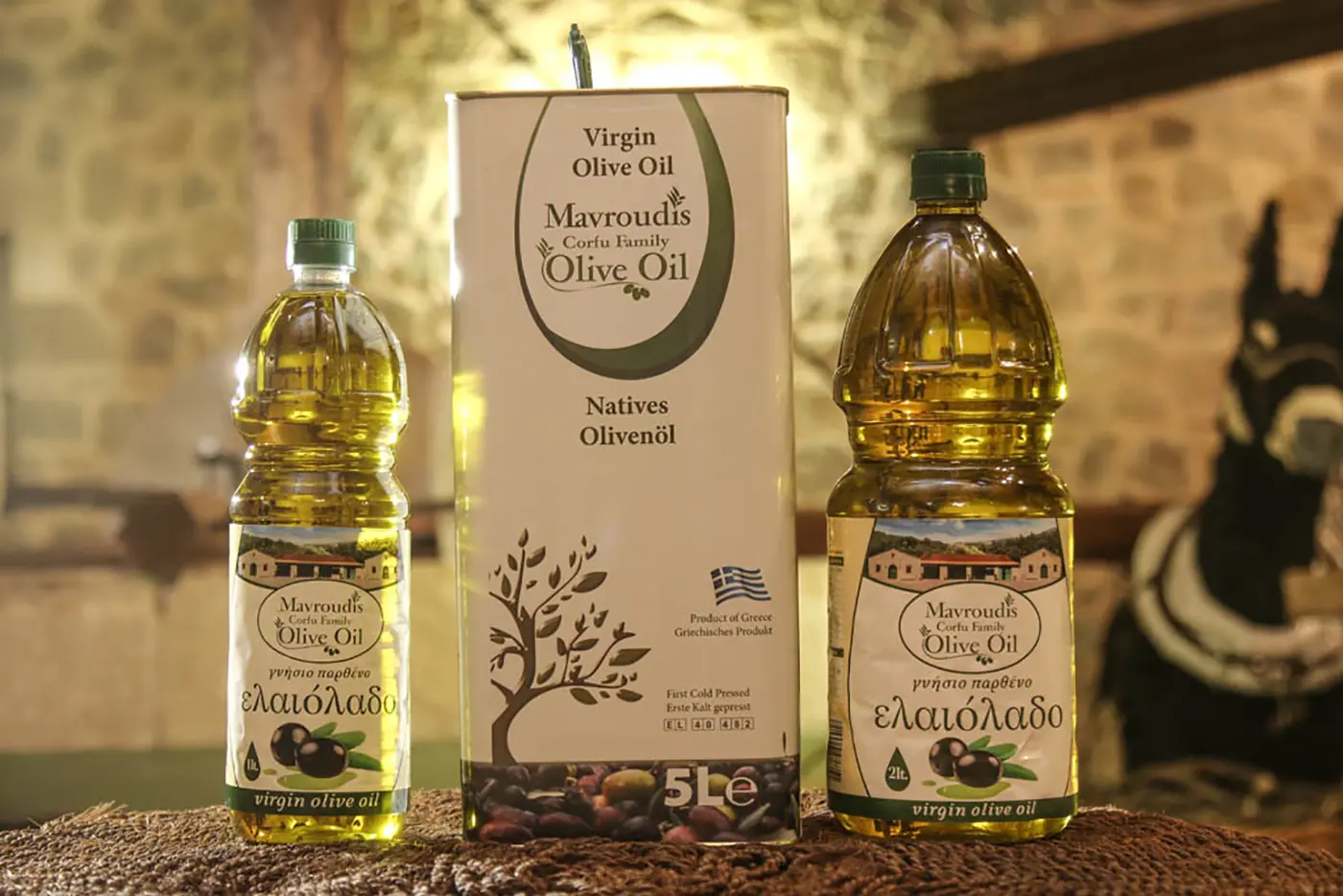Olive oil constitutes an integral part of the cultural and economic identity of Corfu, an island with a long tradition in olive cultivation and the production of quality olive oil. The history of Corfiot olive oil begins in antiquity and continues through the centuries, passing through significant phases that shaped the unique identity of the product, such as the period of Venetian rule, during which production and cultivation experienced significant flourishing. Today, after periods of decline, Corfiot olive oil is experiencing a dynamic renaissance, combining tradition with innovation, highlighting its exceptional quality and distinctive characteristics.
The cultivation of olive trees in Corfu dates back to deep antiquity, with evidence reaching the Hellenistic period and possibly earlier. The olive was a fundamental pillar of the diet, economy, and culture of the island’s inhabitants, as well as throughout the entire Greek region. Corfu’s geographical position, its mild Mediterranean climate, and its fertile soil create ideal conditions for the growth of olive trees, making olive oil a product with steady demand and high quality since ancient times. Archaeological findings include vessels and special jars used for the storage and transport of olive oil, while written sources mention its importance both for local communities and for trade.
A particularly important period for the development of olive cultivation in Corfu is the Venetian rule (1386–1797). The Venetians, known for their expertise in the cultivation and trade of agricultural products, contributed decisively to the development and organization of olive oil production on the island. By establishing their own administrative and commercial structures, the Venetians strengthened local cultivations, introduced new cultivation and processing techniques, and expanded the markets to which Corfiot olive oil was supplied. The island’s unique geomorphological conditions, combined with the ripening and harvesting techniques adopted, shaped the characteristic profile of the olive oil, distinguished by its fruity taste, subtle spicy aroma, and high quality.
The main olive variety cultivated in Corfu is the “Lianolia,” a native variety that has evolved and adapted perfectly to the local climatic and soil conditions. Lianolia is characterized by small and elongated fruits, producing an exceptionally aromatic and balanced olive oil with a slightly bitter and spicy aftertaste. This rich flavor is combined with notes of fresh fruit and herbs, giving the oil a multifaceted profile that makes it highly sought after both for traditional Corfiot cuisine and by modern chefs seeking to highlight the authenticity and quality of local products.
After the end of Venetian rule and during the subsequent centuries, olive cultivation in Corfu faced many difficulties. Wars, social unrest, changes in the economic model, and the gradual shift of the local economy toward other sectors had negative effects on olive oil production. At the same time, lack of investment and neglect of traditional cultivation practices led to a gradual decline in production and product quality, while the introduction of cheaper olive oils from other regions limited domestic demand.
In recent years, however, Corfu has experienced a new “renaissance” of its olive oil, based on a strong effort to revive and promote local production. Small producers, cooperatives, and local authorities collaborate to upgrade quality, improve cultivation and harvesting methods, and promote Corfiot olive oil in domestic and international markets. The return to traditional varieties, such as Lianolia, combined with the use of modern processing and certification techniques, has led to products of high flavor value and unmatched quality.
An important role in this renaissance is also played by the growing consumer trend toward natural, organic, and local products, which, combined with the increasing interest in Greek and Mediterranean diets, promote Corfiot olive oil as one of the best in the country. At the same time, educational programs, seminars, and promotional activities are organized to raise public awareness and increase the product’s recognition.
The preservation of the Lianolia variety and the shift toward ecological cultivation enhance the sustainability of the olive groves and the protection of Corfu’s natural environment. Producers invest in practices that respect biodiversity and avoid the use of chemicals, thus contributing to the production of a clean and healthy product.






Comments are closed